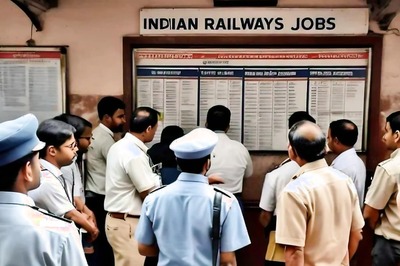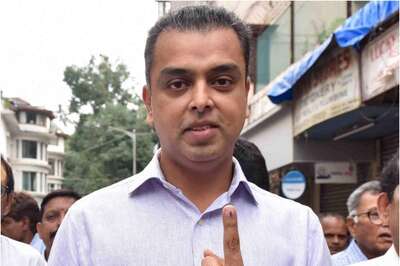
views
The Pressures of FriendshipThe impact of India's economic resurgence and renewed self-confidence on its foreign policy is beginning to attract the attention of the western world. It is being watched with interest whether the direction of the Indian foreign policy assumes an appreciably pro-US tilt. In this context, the proposed plan by the US to revoke a ban on the sale of civilian nuclear technology to India, tentative discussions regarding a gas pipeline from Iran to India via Pakistan, and India's recent votes against Iran at the International Atomic Agency in Vienna have received close scrutiny in the western media. Against the background of China's simultaneous emergence as an Asian power house with global aspirations, this theme has taken on an important geo-political dimension. What is also increasingly apparent is that in the 21st century, energy security considerations will play a fundamental role in influencing a nation's foreign policy. No country can afford to cast its mind aside from the need to ensure the availability of energy resources to sustain its appetite for growth.
As ever, nations are creatures of self-interest. Going forward, the critical challenge for Indian foreign policy will be to achieve a consistent balance between the expectations of its natural allies and at times, its own conflicting pursuits.
*****
The Cartoon MuseumA museum devoted exclusively to cartoons opened to the general public over the last week. When I learnt this, I could not resist a visit. A first of its kind in London, the Cartoon Museum is a magnificent treat. The cartoons on display include caricatures and comic art and explore the development of the genre in Britain from the 18th century onwards: there are many gems of political and social satire to be found. The important part that cartoons have played in contributing to political discourse and serving as a useful mirror to society is brought out skilfully. While the controversy over the Danish cartoons may still be alive in the minds of some, it should not obscure the overwhelmingly positive role that cartoons have played in modern civil society. On a lighter note, the other unique part about the experience was hearing the constant squeals of laughter in a museum.
(Rishabh Bhandari is a lawyer at a global law firm in London. These are his personal views.) first published:February 27, 2006, 12:02 ISTlast updated:February 27, 2006, 12:02 IST
window._taboola = window._taboola || [];_taboola.push({mode: 'thumbnails-mid-article',container: 'taboola-mid-article-thumbnails',placement: 'Mid Article Thumbnails',target_type: 'mix'});
let eventFire = false;
window.addEventListener('scroll', () => {
if (window.taboolaInt && !eventFire) {
setTimeout(() => {
ga('send', 'event', 'Mid Article Thumbnails', 'PV');
ga('set', 'dimension22', "Taboola Yes");
}, 4000);
eventFire = true;
}
});
window._taboola = window._taboola || [];_taboola.push({mode: 'thumbnails-a', container: 'taboola-below-article-thumbnails', placement: 'Below Article Thumbnails', target_type: 'mix' });Latest News
Abbey RoadTucked away in a quiet and leafy corner of north-west London lies Abbey Road, made famous by the eponymous album by The Beatles in 1969. The cover photograph, with the four band members walking on the zebra crossing outside the Abbey Studios - with Paul McCartney barefoot, eyes closed and cigarette in hand - has acquired a cult status that remains undiminished to date. Scores of tourists continue to visit the road, scribbling messages of enduring affection ("John, I will never forget what you have done for me") on the regularly white-washed walls of the Abbey Studio and photographing themselves walking across the crossing, much to the bemusement of passing motorists and residents.

The Pressures of FriendshipThe impact of India's economic resurgence and renewed self-confidence on its foreign policy is beginning to attract the attention of the western world. It is being watched with interest whether the direction of the Indian foreign policy assumes an appreciably pro-US tilt. In this context, the proposed plan by the US to revoke a ban on the sale of civilian nuclear technology to India, tentative discussions regarding a gas pipeline from Iran to India via Pakistan, and India's recent votes against Iran at the International Atomic Agency in Vienna have received close scrutiny in the western media. Against the background of China's simultaneous emergence as an Asian power house with global aspirations, this theme has taken on an important geo-political dimension. What is also increasingly apparent is that in the 21st century, energy security considerations will play a fundamental role in influencing a nation's foreign policy. No country can afford to cast its mind aside from the need to ensure the availability of energy resources to sustain its appetite for growth.
As ever, nations are creatures of self-interest. Going forward, the critical challenge for Indian foreign policy will be to achieve a consistent balance between the expectations of its natural allies and at times, its own conflicting pursuits.
*****
The Cartoon MuseumA museum devoted exclusively to cartoons opened to the general public over the last week. When I learnt this, I could not resist a visit. A first of its kind in London, the Cartoon Museum is a magnificent treat. The cartoons on display include caricatures and comic art and explore the development of the genre in Britain from the 18th century onwards: there are many gems of political and social satire to be found. The important part that cartoons have played in contributing to political discourse and serving as a useful mirror to society is brought out skilfully. While the controversy over the Danish cartoons may still be alive in the minds of some, it should not obscure the overwhelmingly positive role that cartoons have played in modern civil society. On a lighter note, the other unique part about the experience was hearing the constant squeals of laughter in a museum.
(Rishabh Bhandari is a lawyer at a global law firm in London. These are his personal views.)















Comments
0 comment